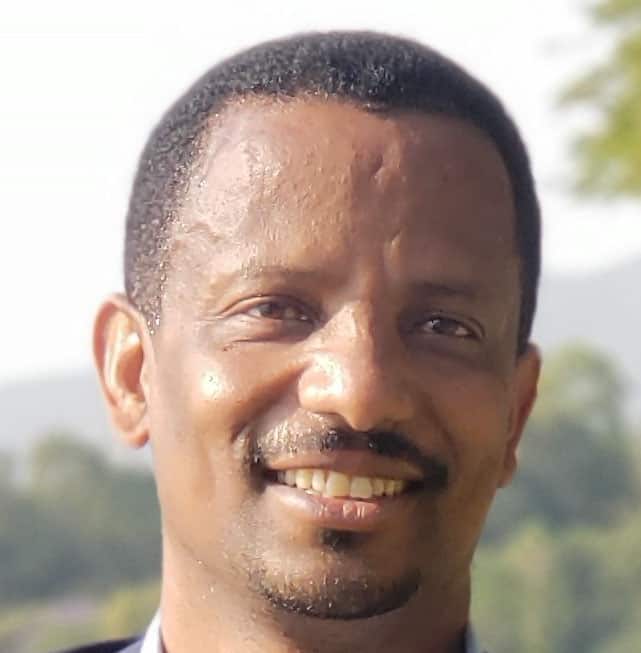Over the last two weeks, the news cycle has been inundated with reports, stories and updates on events unfolding in Haiti and Afghanistan. While our teams on the ground in Haiti continue to respond with emergency assistance, and our local U.S. offices prepare to welcome new Afghan neighbors, we don’t want to forget the other crises that continue to evolve across the globe.
Today, World Relief’s Gemta Adula speaks into the conflict happening in the Tigray region of Ethiopia, advocating for sustainable solutions to a complex situation. Read on to learn more. Thank you for continuing to lean in and join us as we respond to urgent crises and build resilience in communities across the globe.
With military forces blocking humanitarian aid routes to parts of Ethiopia’s volatile Tigray region, there are calls in Congress to enact sanctions against the Ethiopian government. But sanctions are not the answer.
I work with Ethiopian refugees, and my experience has shown me that sanctions will only further impede aid from reaching the most vulnerable people in rural Tigray. I urge the U.S. to keep the diplomatic channels open and focus on finding a way to open humanitarian access.
Tigray has been the site of guerilla warfare, sexual violence and torture since the end of 2020, when a conflict arose between the Ethiopian federal government and Tigrayan regional forces. Since then, an estimated 1.7 million people have been displaced from their homes; many are internally displaced, while others have crossed borders into Eritrea and Sudan, where I served as World Relief’s country director for six years.
Most are left with nothing more than the clothes they were wearing. The situation is likely larger than we know, but the government has restricted access to and communication with many parts of the region.
World Relief operates in various parts of Sudan, including as one of the largest NGOs operating in West Darfur and Central Darfur, which are facing their own tensions and displacement crisis.
But we are also active in the Blue Nile State, on the Ethiopian border, where we are helping refugees who have crossed the border into Sudan. Last month, a new camp called Camp 6 was established 6 km away from the Ethiopian border, designed in coordination between the Sudanese Government’s Commissioner for Refugees and the U.N. World Relief has been distributing food, blankets, shelter materials, face masks and soap bars in the camp.
One of the refugees at Camp 6 is Eikram Ali, a 14-year-old girl who fled the violence and was separated from her parents in the process. In Ethiopia, she dreamed of becoming a teacher or a nurse, but her life has been turned upside down by the conflict. Her village was hit by massive mortar attacks, and she spent her first weeks in camp not knowing whether her parents had survived the attacks. Only recently, she learned they were alive when friends from her village arrived in Camp 6. “I still can’t sleep,” she told one of our staff members, “because I am really missing them.”
The situation in Sudan is difficult. The economy in Sudan is in a freefall, with the value of the Sudanese pound falling rapidly. Buying power declines daily. Fuel is in short supply. Trade and commerce have been impacted by COVID-19 restrictions and refugees are especially vulnerable to the virus.
America lost a lot of its clout with the Ethiopian government during the previous presidential administration. But even as we work to rebuild bridges, we need to push hard on Ethiopian leaders to be accountable for these atrocities and to truly consider whether the cost of continued fighting in the name of national unity is worth the destruction of innocent lives.
We have to focus on finding a diplomatic solution in Tigray to restore peace and stability in the region so that displaced people can return to their homes in time.
The United States should not push unilaterally for sanctions, but rather should work with the U.N. on durable solutions. In time, there will be a need to dispense justice through meaningful truth and reconciliation methodologies, but right now, getting aid to the Tigrayan refugees in Sudan and allowing humanitarian access to all parts of Tigray in Ethiopia should be the top priorities.
By giving today, you help World Relief respond to crises like the one in Tigray when and where we’re needed most. Your gift provides aid to those affected by humanitarian crises and builds resilience in communities across the globe.

Gemta Birhanu has been the Sudan Country Director for the past six years, and was recently promoted to Deputy Director of the Humanitarian and Disaster Response Unit at World Relief. Gemta holds a Master’s in Business Administration (MBA) with specialization in project management, and a Bachelor’s of Science in Dry Land Agriculture and Natural Resources Management. Gemta lives in Ethiopia with his wife and three children.

